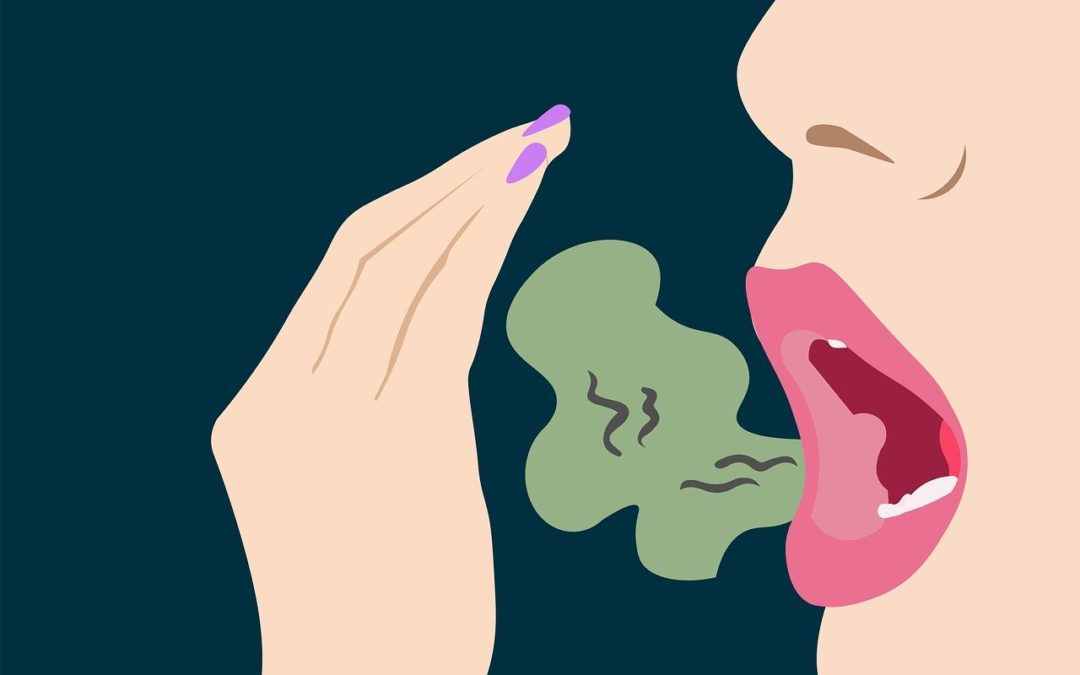What Causes Bad Breath?
Do you often find yourself embarrassed with bad breath? You’re not alone; bad breath affects an estimated 25 percent of people and is known as halitosis. It is caused by odor-producing bacteria that grow in the mouth, and when you don’t brush and floss your teeth regularly, these bacteria accumulate on the bits of food left in your mouth and between your teeth. The sulfur compounds released by these bacteria are what make your breath smell. Halitosis is relatively common, but it is also often easy to treat and prevent.
Halitosis can be caused by something you eat, or it can even signify a deeper oral health issue or a serious medical issue. Here are the three common causes of bad breath:
Oral issues
The most common cause of halitosis is bad oral hygiene. Around 80% of what causes halitosis is oral issues from bacteria buildup, such as cavities, gum disease, cracked fillings, and less-than-clean dentures. Bacteria buildup often occurs in places a toothbrush can’t reach, which in turn can cause plaque build-up. If you don’t brush and floss regularly, this plaque can irritate your gums and cause inflammation between the teeth and gums, called periodontitis, and can also lead to persistent bad breath.
Diet
Some foods like onions and garlic that contain pungent oils can cause bad breath because the oils are carried to your lungs and out through your mouth each time you exhale. Drinks like excessive coffee and alcohol consumption can also contribute to bad breath. Caffeine in coffee leads to a decline in saliva production, which means an increase in odor-causing bacteria. The same goes for drinking excessive amounts of alcohol.
Diets that are high in sugar can lead to bad breath due to how sugars interact with the existing bacteria in your mouth. The bacteria that naturally exist in your mouth feed on sugars, turning sweet treats into sour smells.
Medical conditions
Tobacco products not only cause their own types of mouth odor, but they can also increase the chances of gum disease, which can also cause bad breath.
Though not as common, medical conditions, such as lung disease, certain cancers, blood disorders, and kidney disease can also contribute to halitosis. Infections or inflammation in the nose, throat, or sinuses can also cause halitosis.
How to treat halitosis
Because most halitosis cases start inside the mouth, your first step for treatment should be to establish a daily oral healthcare routine. You should be brushing and flossing your teeth twice daily to prevent odor-causing bacteria.
When brushing your teeth, focus on cleaning your tongue, because that is where a large amount of the bacteria live. Don’t forget to floss and use mouthwash as that can also help prevent and treat halitosis.
If you don’t see an improvement with these home remedies, then it’s time to visit your dentist. Schedule an appointment with us and we will help you find the best treatment option for you.

